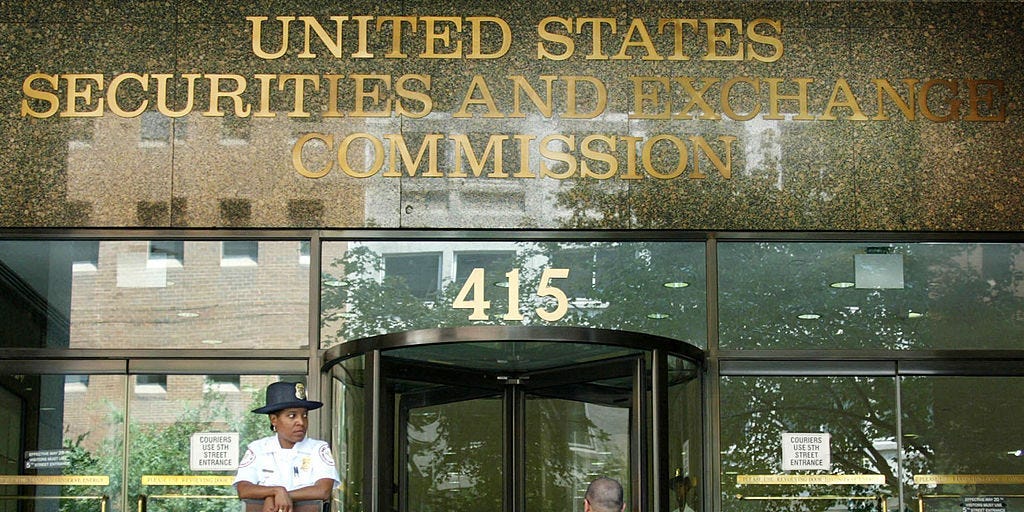
- The SEC said Monday it has charged two people for engaging in a fraudulent scheme centered on put options of certain meme stocks.
- The regulator said the men illicitly collected liquidity rebates from exchanges by using a form of market manipulation called "wash trading."
- One of the men charged continued the scheme after certain broker-dealers closed his accounts, the SEC said.
- See more stories on Insider's business page.
The Securities and Exchange Commission said Monday it has charged two individuals for fraudulently collecting liquidity rebates from exchanges in a trading scheme centered on so-called meme stocks.
The regulator said Florida resident Suyun Gu and his friend and business associate, Yong Lee, used a type of market manipulation called "wash trading" to take advantage of a "maker-taker" program under which an exchange reimburses liquidity providers for their market participation.
The SEC said in a maker-taker program, a trade order sent to an exchange and executed against a subsequently received order makes liquidity and generates a rebate from the exchange.
Gu became aware of the jump in volume and volatility driven by meme stocks and then devised a scheme to illegally profit off rebates by trading options of those stocks with himself using various broker-dealer accounts, the agency said. It said Gu used broker-dealer accounts that passed rebates back to their customers to place initial orders on one side of the market, then used broker-dealer accounts that didn't charge fees for taking liquidity for his subsequent orders on the other side of the market.
The SEC alleges Gu executed about 11,400 trades with himself, netting at least $668,671 in liquidity rebates, and that Lee executed about 2,300 trades with himself, netting $51,334 in rebates.
"In addition to collecting these ill-gotten rebates, the wash trading scheme allegedly impacted the market as it skewed the volume in certain option contracts and induced other traders to place trades in otherwise illiquid option contracts," the SEC said.
The SEC said in choosing products to trade, Gu and Lee selected far out-of-the-money put options on some meme stocks. A put option is a contract that allows the owner the right to sell an asset at a predetermined, or strike, price. Out of the money is when the current price of a stock is below the strike price. Gu and Lee thought such products "would be easier to trade against themselves because interest in buying the 'meme stocks' and related price increases would make put options on those stocks less attractive," it said.
Gu continued the scheme through mid-April after certain broker-dealers closed Gu's and Lee's accounts in early March. Gu was able to continue by lying to broker-dealers about his trading strategy, using accounts in the names of other people, and accessing the accounts through virtual private networks to hide his activity, the SEC said.
Lee, without admitting or denying the SEC's allegations, agreed to pay $51,334 in profit he made, plus $515 in prejudgement interest and a civil penalty of $25,000. Litigation against Gu is still pending.
